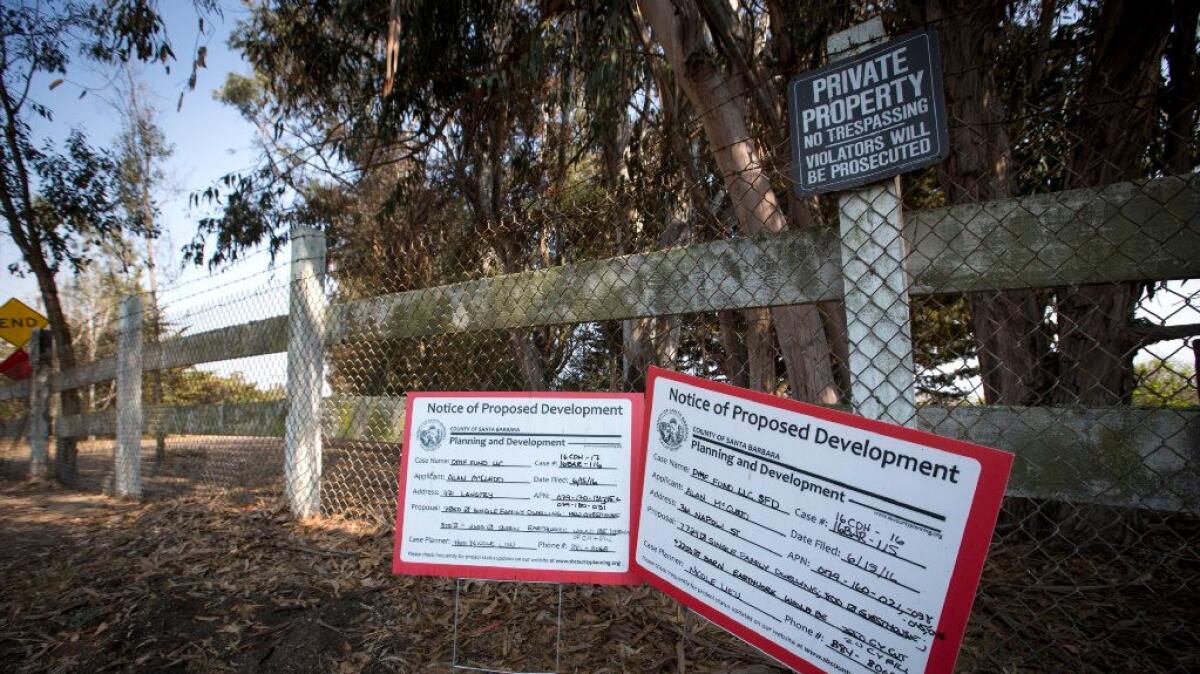Bill to ban behind-the-scenes communications by coastal commissioners heads to the full Assembly for a vote

- Share via
With this year’s legislative session about to end, a bill to ban behind-the-scenes communications by members of the California Coastal Commission has survived opposition from business and labor interests and is headed to the full Assembly on Tuesday for consideration.
The measure by Sen. Hannah-Beth Jackson (D-Santa Barbara) calls for a ban on so-called ex-parte contacts that occur outside official public meetings between coastal commissioners and developers, lobbyists, environmentalists and other parties with a stake in commission business.
These meetings can involve telephone calls, face-to-face meetings, e-mails or other written material. Commissioners must publicly disclose such contacts within a week of their occurrence, either in writing or orally at a public hearing.
Coastal commissioners in recent months have been subjected to scrutiny by courts and the media for failing to report these meetings or reporting them late or with little detail.
Jackson has said the ban is necessary to promote open government, remove the possibility of backroom deal-making and help restore confidence in the commission since Executive Director Charles Lester was fired in February with little public explanation.
Critics of ex-partes say they are predominately used by developers seeking approval for projects along California’s 1,100 miles of coast and can undermine the fairness of the court-like proceedings the commission uses for decision-making.
Public hearings, they say, provide an equitable forum at which all interested parties can openly provide information that might influence commissioners’ decisions.
Jackson’s bill survived in the Appropriations Committee despite opposition from groups often aligned with development interests, including the California Chamber of Commerce, the Western States Petroleum Assn., and the State Building and Construction Trades Council of California.
The California League of United Latin American Citizens also weighed in against the bill.
The bill’s critics argue that ex-parte communications are a good way to inform commissioners about matters coming before them and make the appointed officials accessible to the public.
The bill’s supporters became concerned earlier this month that amendments added by the Appropriations Committee would continue to allow private communications between commissioners and developers at the expense of the other parties. But Jackson and supporters of the bill said that subsequent refinements of the amendments have left the ban basically intact.
The legislation also would prevent commissioners from trying to influence the agency’s staff in the preparation of reports and recommendations related to commission business. This provision is designed to protect the independence of the staff, which is supposed to objectively evaluate projects and proposals free of political influence.
The measure is scheduled for a vote on Wednesday, the last day of the legislative session for the year. If assembly members defeat the bill or take no action, Jackson or another legislator would have to reintroduce a new bill next year.
Twitter: @ladeadline16
ALSO
Remains of five adults found after suspicious fire guts care facility in Temecula
L.A. to spend more than $200 million to settle suit on housing for disabled
Woman says Chris Brown pointed gun at her and said, ‘I’m sick of you girls’
More to Read
Sign up for Essential California
The most important California stories and recommendations in your inbox every morning.
You may occasionally receive promotional content from the Los Angeles Times.














